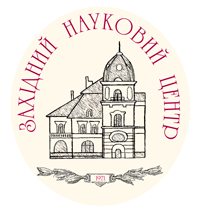Volodymyr DUTKA1, Galyna MIDYANA2, Yuriy DUTKA2, Olena PAL’CHIKOVA2
1Ivan Franko National University of Lviv, Kyryla i Mefodiy Str., 6, 79005 Lviv, Ukraine, e-mail: vdutka@ukr.net
2Department of the Physical Chemistry of Fossil Fuels, L.M. Litvinenko Institute of Physical Organic and Coal Chemistry of UNAS, Naukova St. 3a, 79060 Lviv, Ukraine
DOI: https://doi.org/10.37827/ntsh.chem.2021.66.034
OXIDATION OF NITROGEN-CONTAINING COMPOUNDS BY PEROXY ACIDS IN VARIOUS ORGANIC SOLVENTS
The rate of oxidation reaction of pyridine, acridine, qinoline, 8-oxyqinoline by peroxy acids in benzene and acetone was studied. The rate of oxidation pyridine by peroxydecanoic acid in 12 organic solvents was studied. It has been found the effective rate constants (k) and the activation energy (Ea) of studied process. Between the parameters of the transition state ΔН≠ and ΔЅ≠ is some linear relationship, indicating on the presence of the counteraction effect in our series of experiments. The rate of oxidation and activation energy inflation of solvation peroxy acid and pyridine was calculated. The reaction medium affects the rate of oxidation. Correlation equations between the rate constants of the reactions in study and the physicochemical parameters of the solvents were proposed. The correlation equation for effective rate constants and the basic physicochemical parameters of solvents at 313 K has the form k = –418.6833 – (580.4603 ± 82.7014)f(n) – (453.2688 ± 47.6337)f(ε) – – (0.4139 ± 0.0289)B + (14.9936 ± 1.5711)ET + (0.2934 ± 0.0326)δ2 + + (1.3132 ± 0.1877)VM N = 10; R = 0.9908; S = 2.2035; F = 3.3849. Correlation equations for effective rate constants for other temperatures are similar. The correlation equation for effective energies (Ea) of activation and the basic physicochemical parameters of solvents has the form: Еак = 89.3888 + (252.1450 ± 21.9776)f(n) + (110.0989 ± 19.2279)f(ε) + + (0.1011 ± 0.0090)δ2 + (0.2540 ± 0.0206)VM N = 10; R = 0.9862; S = 1.7897; F = 3.3801. The molar volume, Hildebrand's function, f(n) and f(ε) of solvent have effect on the energy of activation process. The proposed correlation equations relate the parameters of the transition state of the oxidation process and the physic-chemical parameters of solvents.
Keywords: acrydine, oxidation reaction, peroxy acids, activation energy, correlation equation
References:
-
1. Prilezhaeva E.N. Prilezhaev Reaction: Electrophilic Oxidation. Moscow: Khimiya, Nauka, 1974. 332 p. (in
Russian).
2. Antonovskii V.L. Organic peroxide initiators. Moscow: Khimiya. 1972. 448 p.(in Russian).
3. Tolstikov G.A. Hydroperoxide Oxidation, Moscow, Nauka, 1974. 200 p. (in Russian).
4. Haynes A. (Ed). Methods of Oxidation of Organic Compounds. Academic Press Inc., London 1985.
5. Keur N., Kishare D. Peroxy Acids: Role in Organic Synthesis. Synth. Commun. 2014. Vol. 44(6). P. 721–747. (https://doi.org/10.1080/00397911.2012.746369).
6. Kim J., Huang C.H. Reactivity of Peracetic Acid with Organic Compounds: Critical Rewiew. ACS EST Water 2021.
Vol. 1(1). P. 15–33. (https://doi.org/10.1021/acsestwater.0c00029).
7. Lokhov R.E. Kinetics of N-oxidation of compounds of the quinoline series and isomeric benzoquinolines by
perbenzoic acid in chloroform and aques dioxane. Chem. Heterocycl. Compd. 1981. Vol. 17. P. 72–76. (https://doi.org/10.1007/BF00507096).
8. Dutka V.S., Zagorskaya V.V., Dutka Yu.V. Catalytic Decompositon of Aliphatic Peroxy Acids. Kinet. Catal. 2010.
Vol. 51(3). P. 364–369. (https://doi.org/10.1134/S0023158410030067).
9. Dutka V.S., Midyna G.G., Dutka Yu.V., Pal”chikova E.Ya. Influence of Solvents on the Rate of Thermal
Decomposition of Peroxydecanoic Acid. Russ. J. Gen. Chem. 2018. Vol. 88(2). C. 188–194. (https://doi.org/10.1134/S1070363218020020).
10. Dutka V.S., Zagorskaya V.V., Dutka Yu.V., Savitskaya O.I. Thermal Decomposition of Aliphatic Peroxy Acids.
Kinet. Catal. 2011. Vol. 52(3). P. 347-351. (https://doi.org/10.1134/S0023159411020054).
11. Dutka V.S., Matsyuk N.V., Dutka Yu.V. Influence of a Reaction Medium on the Oxidation of Aromatic
Nitrogen-containing Compounds by Peroxyacids. Russ. J. Phys. Chem. A. 2011. - Vol. 85(1). Р. 45–50. (https://doi.org/10.1134/S0036024411010079).
12. Dutka V., Midyana G., Pal’chikova O., Dutka Yu., Nagornyak I. Influence of organic solvents on rate of
oxidation of the quinoline by peroxydecanic acid. Proc. Shevchenko Sci. Soc. Chem. Sci. 2019. Vol. LVI. P. 89 –
100. (https://doi.org/10.37827/ntsh.chem.2019.56.089).
13. Dutka V., Kovalskyi Ya., Aksimentyeva O., Tkachuk N., Oshapovska N., Halechco H. Molecular modeling of
acridine oxidation by peroxyacsls. Chem. Chem. Technol. 2019. Vol. 13(3). P. 334–340.
(https://doi.org/10.23939/chcht13.03.334).
14. Dutka V., Matsyuk N., Zastavska G., Matsyuk M. Effect of solvent on the oxidation аcridine peroxydekanoic
acid. Visnyk Lviv Univ. Ser. Chem. 2015. Vol. 56. С. 313–318.
15. Dutka V.S., Makitra R.G., Dutka Yu.V., Pal”chikova E.Ya., Matsyuk N.V. Effect of solvents on rate of
epoxidations of α -pinene and Δ3- careen with peroxidecanoic acid. Russ. J. Gen. Chem. 2014. Vol.
84(2). P.
298–303. (https://doi.org/10.1134/S107036321402025X).
16. Klaig J., Kizja G., Rzepa H.S. Epoxidation of Alkenes by Peracids: From Textbook Mechanisms to a Quantum
Mechanically Derived Curly-Arrow Depiction. ChemistryOpen. 2019. Vol. 8(10). Р. 1244–1250. (https://doi.org/10.1002/open.201900099).
17. Okovytyy S.I., Zhurakovskyi O.A. Stereochemistry of the epoxidation of bicyclo[2.2.1]hept-2-ene and its
7-syn-substituted derivates. A DFT study. Bull. Dnipropetrovs Univ. Ser. Chem. 2014. Vol. 22(1). Р. 52–58.
(https://doi.org/10.15421/081409).
18. Okovytyy S., Gorb L., Leszczynski J. A reivestigation of the mechanism of epoxidation of alkens by peroxy
acids. A CASSCF and UQCISD study. Tetrahedron Lett. 2002. Vol. 43(23). P. 4213–4219. (https://doi.org/10.1016/S0040-4039(02)00747-5).
19. Blazheyevskij M. Applycation derivatization by means of peroxy acid oxidation and perhydrolysis reaction in
pharmaceutical analysis. Ivan Franko National Univ. Lviv. 2017 – 106 p.
20. Blazheyevski M. Spectrophotometric and spectrofluorimetric determination of the 2- and 10-disubstituted
phenothiazines using peroxy acid oxidation. Curr. Top. Anal. Chem. 2019. Vol. 11. P. 67–80.
21. Blazheyevskij M. Ye., Riabko D. N. Application of peroxy acid as disinfectants and sterilization agent. LAP
Lambert Academin Publishing 2014. 129 p.
22. Parker W.E., Riccuti C, Ogg C.L., Swern D. Peroxides II. Preparation, characterization and polarographic
behavior of long-chain aliphatic peracids. J. Am. Chem. Soc. 1955. Vol. 77(15). P. 4037–4041. (https://doi.org/10.1021/ja01620a023).
23. Antonovskii V.L., Buzulanova M.M. Analitical Chemistry of Organic Peroxide Compounds. Moscow: Khimiya. 1978.
308 p. (in Russian).
24. 24. Weinberger A, Proskauer E.S., Riddick J.A. and Toops E.E. J. Organic Solvents. Physical Properties and
methods of Purifications, New York: Intersci. 1955.- 2nd ed. 520 p.
25. Gordon F.J., Ford R.F. The chemist’s Companion, New York: Wiley 1972. 541 p.
26. Koppel I.A., Palm V.A. The influence of solvent on organic reactivity. Advances in Linear Free Energy
Relationships. Springer, Boston, MA, 1972. P. 203–280. (https://doi.org/10.1007/978-1-4615-8660-9_5).
27. Makitra R.G., Turovsky A.A, Zaikov E.E. Correlation Analysis in Chemistry of Solution Utrecht-Boston: VSP.
2003. 319 p. (https://doi.org/10.1201/b12185).
28. Makitra R.G., Pirig Ja.N., Kivelyuk R. Available from VINITI. М., 1986. N 628–В86 (in Russian).
29. Dutka V.S., Midyna G.G., Dutka Yu.V., Pal”chikova E.Ya. Solvent Effects on the Rate Thermolysis of Lauroyl
Peroxide. Russ. J. Gen. Chem. 2015. Vol. 85(12). P. 2703–2709. (https://doi.org/10.1134/S1070363215120063).
30. Dutka V.S., Midyna G.G., Dutka Yu.V., Pal”chikova E.Ya. Solvents Effekt on the Rate of Thermal Decomposition
of Diacyl Diperoxides. Russ. J. Gen. Chem. 2018. Vol. 88(4). P. 632–640. (https://doi.org/10.1134/S1070363218040047).
How to Cite
Dutka V., Midyana G., Dutka Yu., Pal’chikova O. OXIDATION OF THE ACRYDINE BY PEROXYDECANIC ACID IN VARIOUS ORGANIC SOLVENTS. Proc. Shevchenko Sci. Soc. Chem. Sci. 2021 Vol. LXVI. P. 34-46.

